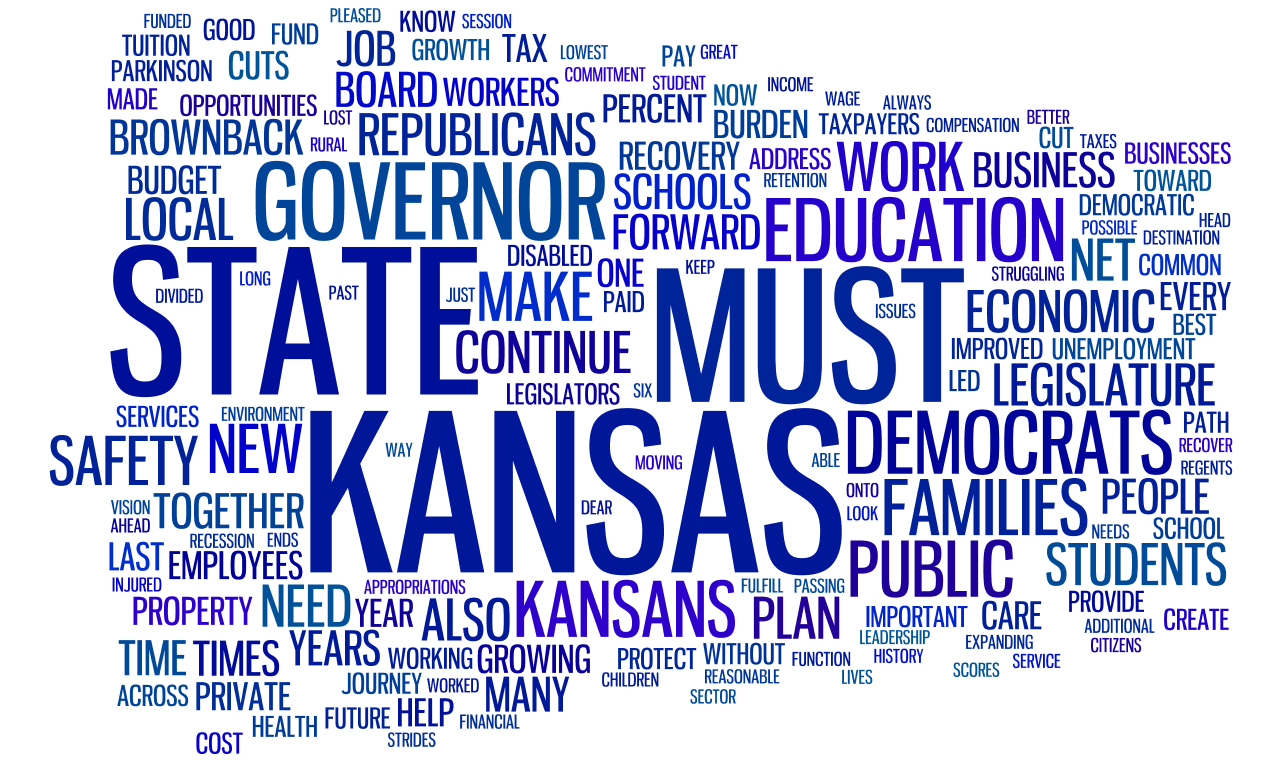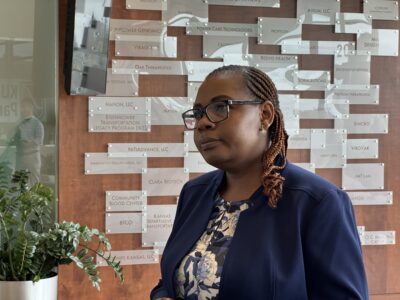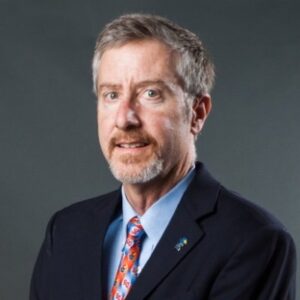State of State Address: Brownback says he will focus on economy
Education budget topic of debate

This word cloud was created using text from Kansas Gov. Sam Brownback's 2011 State of the State address. The larger the font, the more often the word was used.

This word cloud was created using text from the Democratic response to Kansas Gov. Sam Brownback's 2011 State of the State address. The larger the font, the more often the word was used in the response.
Topeka ? Gov. Sam Brownback on Wednesday said that growing the Kansas economy would be his first priority and that tax cuts and investments in higher education would be a large part of that effort.
But Democratic leaders dissected Brownback’s State of the State address and said his budget plan, which will be unveiled today, will result in a funding cut to public education.
Brownback, a Republican who took office Monday, also recommended further restrictions on abortion, and vowed to make more state budget cuts.
On abortion, he said, “I call on the Legislature to bring to my desk legislation that protects the unborn, establishing a culture of life in Kansas.”
On state government, he promised a realignment that would do away with eight state agencies, although he didn’t say which ones, and the elimination of 2,000 unfilled positions.
“The days of ever expanding government are over,” he said. It was a phrase he repeated three times, and he said he planned to cut total state funding by $750 million.
Potential cuts
Greatly outnumbered in the Legislature, Democrats said that they needed more details from Brownback, but that it appeared Brownback’s budget proposals will reduce funding to public schools and other areas.
House Minority Leader Paul Davis of Lawrence said Democrats will not support a budget that results in larger class sizes, teacher and para-professional layoffs, increased tuition, more waiting lists for the disabled, and elimination of critical public safety programs. Davis noted that over the past two years, legislators had already cut approximately $1 billion because of the recession.
Jane Carter, executive director of the Kansas Organization of State Employees, cautioned against more state employee cuts, saying that eliminating unfilled positions “was a slippery slope that jeopardizes our state hospital, correctional facilities and state agencies.”
Brownback said his plan to create jobs would include eliminating corporate tax subsidies benefiting a few companies but allowing Kansas businesses to deduct a higher percentage of the cost of investment. The National Federation of Independent Business-Kansas hailed the proposal, saying it would allow a state income tax deduction on new business machinery and equipment.
Brownback also said he wants to reset the tax code and provide state income tax waivers to people from out-of-state who relocate to rural areas of Kansas.
Higher education
On higher education, Brownback proposed a three-year, $105 million initiative to grow economic sectors, such as cancer research, engineering, animal health and aviation. But the universities would have to come up with half of that funding by raising private funds or reallocating their current resources.
“Great educations grow great futures. Yet our public universities have suffered severe cuts and stagnant rankings at a time when the Kansas economy needs better-educated students and ascending universities,” Brownback said.
Kansas University Chancellor Bernadette Gray-Little praised Brownback’s comments and looked forward to working with him.
“The vision Gov. Brownback set out for higher education should be encouraging to all Kansans,” Gray-Little said.
But state Reps. Tom Sloan, R-Lawrence, and Barbara Ballard, D-Lawrence, said they needed more information on his plans.
“We need the details,” Ballard said, referring to Brownback’s proposal for higher ed that would require a 50 percent match from the universities.
Sloan agreed, saying, “Where do you take those monies from? The devil is going to be in the details.”
Public schools and energy
Brownback said his proposed budget would increase state funding for public schools, but he didn’t say by how much. He has said in the past, however, that he won’t replace $200 million in expiring federal stimulus funds for schools, which would result in a nearly $300 education funding cut in base state aid for each student in Kansas.
Democrats said not replacing those federal funds amounts to a cut to public schools and could lead to local property tax increases.
On energy, Brownback said “we will build” the 895-megawatt coal-burning electric power plant in southwest Kansas, but he also said Kansas needs more wind energy projects.
“I want Kansas to be known as not only the Wheat State, but also the Renewable State,” he said.
Brownback also pledged to fight the federal health care law and said Lt. Gov. Jeff Colyer will start an effort to remake Medicaid. And he called on the Legislature to work on fixing the unfunded liability in the public pension system.







